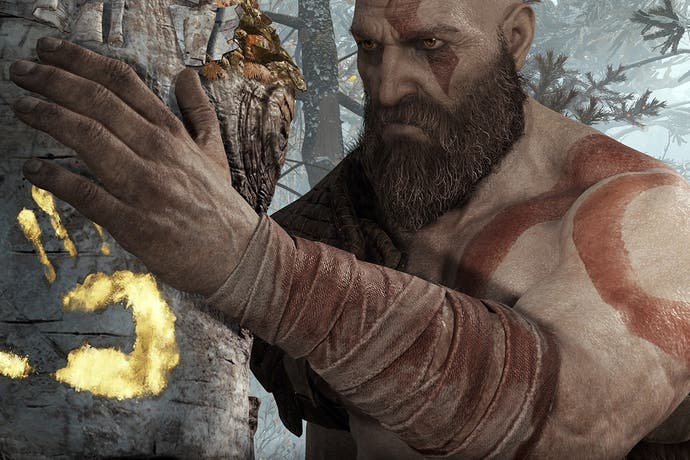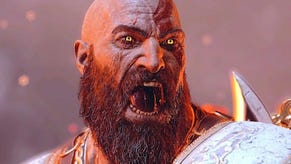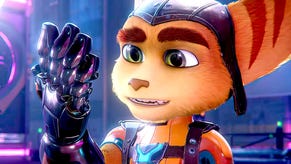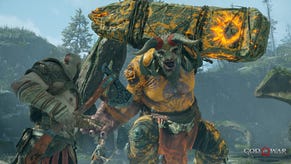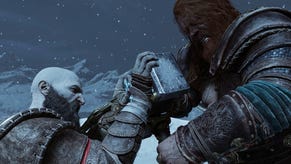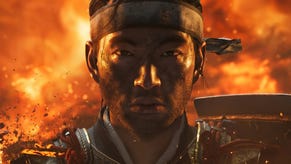God of War has grown up, but Kratos is still reassuringly furious
Endless oner.
Kratos is still angry. If you're concerned about how much has changed in Sony Santa Monica's reboot of the God of War series, it's worth knowing this; in two hours playing the game, what's remarkable is how much has stayed the same. There's the same pent up rage, unleashed in pliable combat as enemies are juggled in the air and then pulled furiously apart, the same cinematic showdowns that dazzle with their panache. The same spectacle, and the same sense that the host hardware is being pushed to its very limit. It's a God of War game alright, in that it's hard to think of any better showcase for what's possible with Sony's console.
And yet so much else has changed. The camera, for one, which now follows closely behind Kratos' shoulder, in a shift that can be likened to that the Resident Evil series underwent between its third and fourth installments. The fundamentals of God of War's combat survive the shift, even if there's been some significant changes. There's a certain inelegance that wasn't there before - during a boss fight with the towering Daudi Kaupmadr, it's hard to see some of its more savage moves being telegraphed when you're stuck staring at its legs, while when you're facing larger mobs of enemies you'll find yourself relying on a threat indicator that circles Kratos and shows where the off-screen danger is coming from.
That's the bad stuff out the way, though, and there's an awful lot of good stuff to get through. The first thing is the combat feels great - punchy, savage and with a fair amount of style. The Blades of Athena are no more, the shift to Norse mythology excusing a new war axe which is at the heart of everything and which is built upon magnificently. There are light and heavy attacks that can be strung together, enemies - draugrs predominantly this time, given the setting - juggled up in the air in one of many easy to access combos.
The war axe does plenty more, too - you can toss it out for a ranged attack, where it'll stay embedded meaning you'll then have to resort to your fists (which is necessary against some enemies who remain impervious to the axe). Even better, it can be summoned back at will - perfect for twatting someone on the upside of the head unawares. It's a lovely addition to Kratos' repertoire, another little flourish amidst all that fury, ensuring that the combat in this new God of War feels as cathartic as it's ever done before.
There's still an emotive edge to the combat, as has ever been the way in this series, but this reboot is about more than just distilling and dishing out lashings of rage. God of War has gone and grown up - Kratos now has a son, Atreus, who follows throughout the game (and can even be summoned to fire a flurry of arrows, more than useful in several of the combat encounters), and Kratos' rage often has to be contained as he wrestles with responsibility.
To understand where those changes in God of War's tone - and in its execution - have come from, you need only look at returning director Cory Barlog and where he's at in his life. "When I first directed God of War 2, we all had a chip on our shoulder," he says. "We had this idea that we were going to take the industry on. I think it was the Devil May Cry director that said after God of War 1 that no western developer could make a good action game. And being arrogant bastards we said challenge accepted, we're totally going to take that on. We kind of put everything on the table."
"We as game makers are all at different phase in our life - we're looking at things through a different lens, and games mean so much more to us, and we feel like we want to put a lot more in what we're doing. Making this God of War - it was going to take five years, so I want it to mean something. I want to be able to show it to my son and actually be proud of what I did."
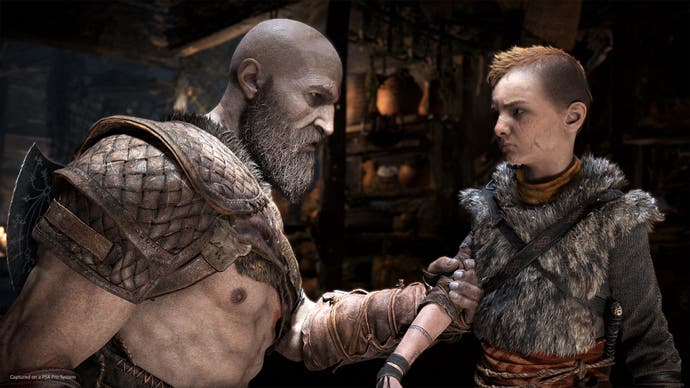
It's easy to see that father/son relationship filtered through into the interactions between Kratos and Arteus - indeed, there's a delicacy and authenticity God of War's central relationship that could only have come through experience - but the most remarkable thing is how it's all told. The entirety of God of War plays out in a single, uninterrupted shot, the camera dancing through the series' trademark cinematic encounters in a way that's thrillingly dynamic. Come the end of 2018 it's likely to go down as one of the year's great achievements in games, and the execution is peerless.
"I was super behind this concept," says Barlog. "I've been wanting to do this for a while. I made it seem very simple to everybody. It wasn't until we got to the first shoot where we had four actors, a complex multi-level set with five touch points of props and four and a half minutes with one take - and one of the actors is nine years old. Then it hit me. This is really hard."
It's paid off, and it shows another shift in this God of War. These have always been cinematic games, but whereas before it was matinee stuff delivered with a murderous edge - you could sense a little Harryhausen in so much of the older games - now its taste in films has matured, leaning on the likes of Russian Ark and Emmanuel Lubezki and Alfonso Cuaron's virtuoso single-shot scenes in Children of Men and Gravity. That's surely down to Barlog and his experiences in the years between his spells at Sony Santa Monica, where he worked with director George Miller on some sadly unreleased projects.
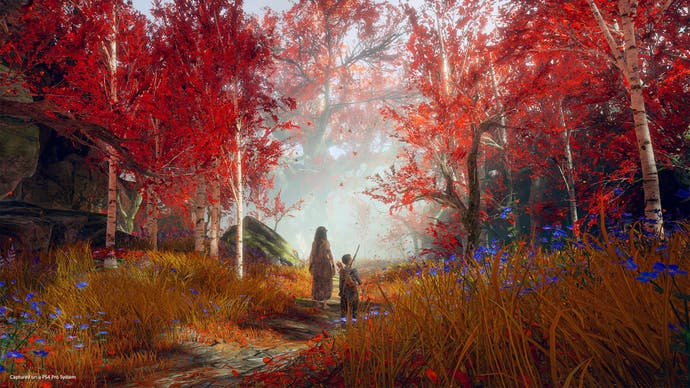
"We were working on Mad Max stuff," says Barlog. "We spent two years in a conference room working on a script and some pitches to connect this whole world. The first time I visited him, I got the pitch for Fury Road - and just that experience alone, it made me realise how much more work I had to do. The entire room was filled with storyboards, and he told me the whole movie, shot for shot. It was phenomenal."
What, exactly, did Barlog learn from that experience that's been poured into this new God of War?
"About how you dissect character - he helped me understand the divide between plot and character development. The idea of a simple story and a complex character, about dramatising the exposition. I don't think there's any single aspect of writing where I didn't learn something from him on a daily basis. I'm shamelessly ripping him off!"
And in that you'll find some of the most impressive changes in this new God of War. It's a more mature take on the formula, chilled slightly by the new Norse backdrop, but it's a much deeper - and subsequently satisfying - one too. So many of us have gone and grown up over the years, and it's a delight when the games we play grow up with us too.
"It's an aspiration I think to see there should be no difference between directors and writers of games and of TV and films," says Barlog. "We're all doing the same job, albeit on a different canvas. To be able to connect with audiences beyond 'raaaaaaaaargh', it's a goal for all of us."
Kratos is still angry, then. But how.
